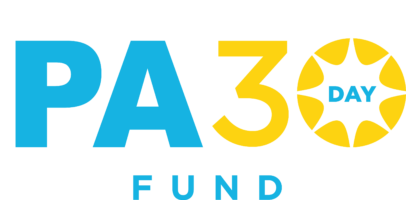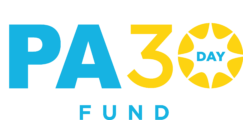They waited for weeks for federal loans and grants. Small businesses found other options to survive
Joyce Gannon
May 25, 2020
Top Tier MMA, a fitness facility in Emsworth, didn’t qualify for the Paycheck Protection Program — the $650 billion federal loan fund created to help small businesses cope with fallout from the COVID-19 pandemic.
So when the state ordered the gym to close in March, owner Bobby Waldron sought an Economic Injury Disaster Loan, another federal funding source. He learned Tuesday he was approved for a $4,000 emergency advance grant.
But during the long and stressful weeks that he had waited and wondered whether he would receive the federal money — and if his business would be able to reopen — Mr. Waldron found relief from yet another source.
Top Tier earlier this month received $3,000 from the PA 30 Day Fund, a private initiative started by entrepreneurs in the Philadelphia area who knew many small firms were desperate for cash as they waited on the feds.
Daniel Moore and Joyce GannonAnother $310 billion in loan money, yet small businesses struggle to access emergency loans
“It’s the lifeline we needed,” Mr. Waldron said.
The fund’s loans are fully forgivable and its partners suggest recipients “pay them forward” to other small enterprises when they are back on their feet, said Jeff Bartos, a fund co-founder and real estate developer in Lower Merion, Montgomery County.
Mom and pop firms that were shut out of PPP and EIDL — or are still waiting to see if they’ll get any help from them — have turned to resources like PA 30 Day Fund, crowdfunding campaigns and corporate grants to help recover from abrupt shutdowns and dramatic declines in business during the virus crisis.
The state created a $60 million fund to offer working capital loans of up to $100,000 for small businesses. That has already closed applications.
Other sources that have provided loans and grants to small businesses in the Pittsburgh region include Facebook, the Hebrew Free Loan Association, Bridgeway Capital, Progress Fund, Honeycomb Credit and the city’s Urban Redevelopment Authority.
“It’s been a job in itself chasing this money,” Mr. Waldron said.
He will use $3,000 from the PA 30 Day Fund to pay the gym’s June rent and for medical grade hand sanitizer, air sanitizers and other products needed to prepare the facility to reopen.
Joyce GannonAs small businesses sink, some wonder if latest relief package will be enough to save them
His Economic Injury Disaster Loan funding is fully forgivable because the U.S. Small Business Administration, which oversees the program, added advance grants of up to $10,000 to be used for working capital during the pandemic.
Those grants and the Paycheck Protection Program are part of the $2 trillion federal stimulus package known as the Coronavirus Aid, Relief, and Economic Security (CARES) Act.
From its start, the PPP — which offers loans of up to $10 million to businesses with fewer than 500 employees — has been mired in controversy. There were application sites that crashed repeatedly, rule changes, funding shortages, and loans that went to large corporations while small firms couldn’t get them.
Top Tier didn’t qualify because its instructors are independent contractors and employees must be on the payroll. Before getting the EIDL advance and PA 30 Day Fund money, Mr. Waldron tapped his own savings to pay instructors to conduct the remote fitness classes for which he doesn’t charge members.
‘The real story’
To qualify for the PA 30 Day Fund, firms must be for-profit, operating for at least a year, and have no more than 30 employees.
They must also upload a video about their business.
“It’s emotionally overwhelming” to watch applicants’ stories, Mr. Bartos said. “What’s going on out there on Main Street … what men and women business owners are doing to get through this … is the real story” of the pandemic’s impact, he said.
Mr. Bartos, who ran for lieutenant governor in 2018 on a Republican ticket with Scott Wagner, in mid-April secured a PPP loan for his construction business.
He wanted to give back to small businesses by creating a nonprofit fund because he was able to bring back his employees and his firm has a solid future, he said. Six friends agreed to join him as funders and advisers; business students at the University of Pennsylvania volunteered to review the applications.
To date, PA 30 Day Fund has received 600-plus applications and approved close to 50 loans. It aims to raise $1 million and fund 300 businesses statewide.
Another business in the Pittsburgh region that got help was 9 Cafe in Wilkinsburg.
Owner Tierra Patterson, who is also waiting to hear about the federal loans she applied for, plans to use $3,000 from PA 30 Day Fund to keep delivery and cleaning workers on staff and pay general expenses.
“Any funding is beneficial, and this is a nice thing to help get us through until the pandemic is over,” she said.
Shira Barron, who owns Aunt Lottie’s Closet, a McKees Rocks thrift store that’s been closed since mid-March, tried crowdfunding through the Kiva Loan platform while waiting to hear about her EIDL application. After Kiva posted Ms. Barron’s request online, she raised $3,000 in 24 hours.
Since her Kiva loan was funded, Ms. Barron has also received an EIDL advance of $1,000.
She has 24 months to repay the no-interest Kiva loan.
Ms. Barron, a throat cancer survivor, opened the shop in 2019 to provide donated clothes and accessories to cancer patients who, like she did, have experienced extreme weight fluctuations during their treatments.
Multiple applications
Requests for Kiva applications in the Pittsburgh region nearly tripled between mid-March and mid-May, to 93 from 32 during the same period a year ago, said Emily Keebler, Kiva Pittsburgh program director at the Riverside Center for Innovation.
Some requests came from people who were waiting on federal loans or other assistance, and not all have submitted final applications, Ms. Keebler said.
“I think that many business owners were trying to figure out what their options were and starting multiple loan applications as they searched for the one that was the best fit,” she said.
Of those that made it to the crowdfunding stage, 15 loans ranging from $2,500 to $15,000 were fully funded and have been disbursed to businesses.
Since the COVID-19 crisis hit, Kiva increased its maximum loan size to $15,000 from $10,000 and added six months to the repayment deadline.
Connie Capiotis, founder and executive director of Digital Bridges, an Elliott firm that provides coaching and entrepreneurship programs, didn’t apply for either the PPP or EIDL programs because she didn’t want to carry debt as the economy reopens.
“I wasn’t thrilled with the idea of taking out loans, even if they had the potential to be forgiven,” she said.
Her firm received a $15,000 grant from Citizens Bank’s Small Business Recovery Program that it will use to operate virtual summer camps for youths. The money will help provide scholarships to low-income participants, Ms. Capiotis said.
The PPP deadline problem
Much of the confusion about the Paycheck Protection Program centers on loan forgiveness.
The loans can be forgiven if 75% of the total is used for payroll costs, but current terms call for the money to be used within eight weeks of receiving it. Members of Congress have proposed extending that time frame.
The deadline is a problem for Crazy Mocha Coffee Co., which secured a PPP loan but has been sitting on it because most of the company’s 150 workers were laid off when nonessential businesses were shut down in March.
Most employees won’t return until the coffee shops are again offering sit-down service — a date that’s still unknown as the state reopens the economy in phases.
At this point, the Cranberry-based business is unable to spend 75% of its loan on payroll, said president and owner Ed Wethli.
Meantime, he’s waiting to hear if he will get a $2 million EIDL he applied for in March.
“I could use the [EIDL] because it can be paid back over 30 years,” Mr. Wethli said. “I’m supposed to use the PPP in eight weeks. How do I do that with a lockdown until at least June?”
The Economic Injury Disaster Loan can be repaid over 30 years with an interest rate of 3.75% for businesses and 2.75% for nonprofits. The Paycheck Protection Program carries interest of 1% but must be repaid in two years.
Anna Austin, owner of Casa Dolce Spa, a Sewickley salon closed since March, got an $8,000 EIDL advance grant along with a loan. She declined to disclose the loan amount, but she said it was “substantial” and will help her avoid using savings to make rent and reopen.
She was close to be being approved for a $31,000 PPP but turned it down.
“The forgiveness issues were giving me anxiety, plus the program ran out of money for many people, so I opted to cancel my application and free up the funds,” she said.


